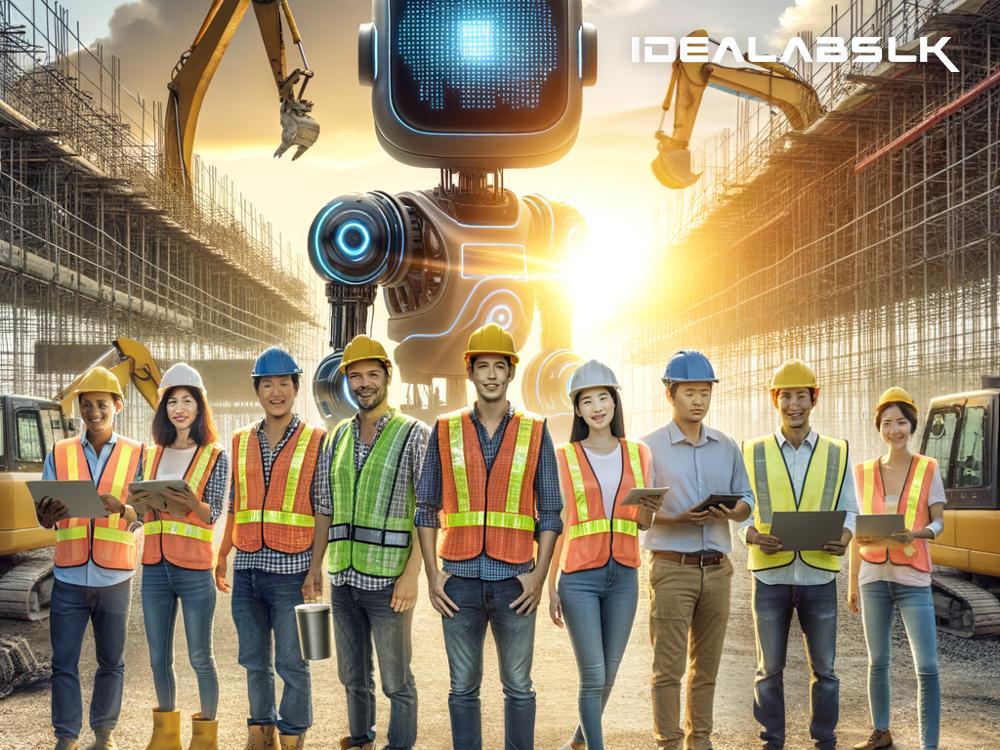AI in Smart Tools for Enhancing Productivity in Construction
In recent years, Artificial Intelligence (AI) has revolutionized how we approach work, making tasks quicker, easier, and more precise. The construction sector, notorious for its demanding nature and tight deadlines, has greatly benefited from these technological advancements. AI-integrated smart tools are leading this change, offering solutions that not only enhance productivity but also save time and reduce human error.
Understanding AI in Construction
Before diving into the specifics, let’s understand what we mean by AI in the construction context. AI involves using computer systems to perform tasks that typically require human intelligence. This includes planning, understanding natural language, recognizing patterns and behaviors, and decision making. When integrated into construction tools, AI empowers these tools to ‘think’, ‘learn’, and make decisions or suggestions that streamline construction processes.
The Impact of AI on Construction Productivity
AI's impact on construction productivity cannot be overstated. Tasks that were once tedious and time-consuming can now be completed faster and with greater accuracy, thanks to smart tools powered by Artificial Intelligence. Here are a few ways how AI is enhancing productivity in construction:
-
Project Planning and Management: AI tools can predict potential project delays, budget overruns, and risks by analyzing vast amounts of data. They can also suggest the optimal sequence of activities, ensuring that projects are completed on time and within budget.
-
Design and Preconstruction: AI-powered tools help in creating more efficient and accurate designs. They can simulate countless design scenarios within minutes, providing architects and engineers with data-driven recommendations to optimize the building's performance.
-
Safety and Risk Assessment: Safety is a paramount concern in construction. AI tools can predict potential safety hazards by analyzing data from past incidents. This proactive approach significantly reduces the likelihood of accidents on site.
-
Resource Allocation and Optimization: AI can analyze past and current project data to forecast future resource needs accurately. This ensures that the right amount of materials, equipment, and labor is available at the right time, reducing waste and improving efficiency.
-
Quality Control: Automated drones and rovers equipped with AI can monitor construction sites in real-time, identifying deviations from plans or potential defects. This allows for immediate corrections, ensuring that projects meet the highest quality standards.
Examples of AI in Smart Tools for Construction
Several AI-integrated smart tools are already making waves in the construction industry. Here are a few notable examples:
-
Autonomous Drones and Vehicles: Drones can perform site surveys and inspections much faster than humans and can reach areas that are otherwise inaccessible. Autonomous vehicles can transport materials across the site efficiently, reducing manual labor and speeding up the construction process.
-
AI-Powered BIM (Building Information Modeling): BIM software with AI capabilities can automatically update blueprints in real-time, ensuring that all stakeholders have access to the most current information. This reduces errors and discrepancies, saving time and money.
-
Smart Wearables: Wearable devices equipped with AI monitor workers' health and safety in real-time. They can detect fatigue, overheating, or falls, alerting supervisors immediately to prevent accidents.
-
Machine Learning Algorithms for Cost Estimation: AI can analyze historical data to provide more accurate cost estimations, helping to avoid budget overruns. These algorithms can learn from each project, becoming smarter and more precise over time.
The Future is Now
While the integration of AI in construction is still evolving, its potential to transform the industry is undeniable. By automating routine tasks, providing valuable insights through data analysis, and enhancing safety, AI in smart tools is paving the way for a more efficient, safer, and cost-effective construction process. As these technologies continue to develop, we can expect even more innovative applications of AI in construction, further boosting productivity and shaping the future of construction.
In conclusion, the integration of AI in construction tools marks a significant milestone in the industry’s journey towards digital transformation. By embracing these smart tools, construction companies can not only stay competitive but also contribute to building a more sustainable and efficient future. The rise of AI in construction is not just a trend; it’s a new way of building that promises to redefine the industry standards for years to come.

